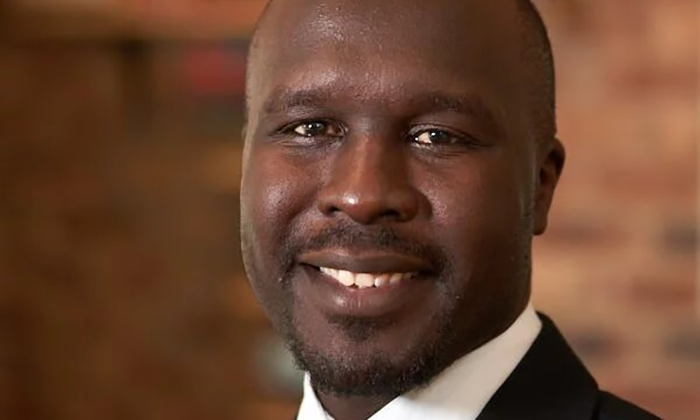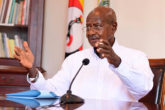
Dr Dennis Kilama . Photo |COURTESY.
As churches consider moving to digital services, Dr Dennis Kilama, the deputy vice chancellor of Africa Renewal University says it’s important that pastors don’t forget those in their church who may be unable to afford the internet, or lack access to it.
He explained in an article published by The Gospel Coalition (Africa) on 20 March, 2020, that the move by government to close Churches countrywide over coronavirus concerns should not prompt Pastors to withdraw from ministry, and take a sabbatical leave.
Dr Kilama who is also the senior Pastor of Lugogo Baptist Church in Kampala urged that many congregants left with no shepherding, will feed on “spiritual poison” that could cause long term destruction, long after the pandemic has ended.
“Now is a time for the pastor to take a defensive posture to confront the dangers of false doctrine that could have long term effects long after COVID-19 is gone. Most of these doctrines are easily accessible in Africa on our televisions and radios and if our people are unattended these could be the only option available for our congregants,” he said.
Dr Kilama continued, “This is not the time to withdraw from the sheep but to guard the sheep against predatory wolves that could attack in the absence of the shepherd.”
The preacher revealed that it is essential for pastors with congregations with limited internet access to ensure the following:
1) Restructure the ministry operations of the church.
“This will include meeting with the core leadership team and decentralising the pastoral care. It is essential that the pastor practice leading as a team and not as individual one-man leadership. Make sure each member is directly under some pastoral care and accountability. Ensure the continuous flow of the authentic ministry of prayer and the word while encouraging social distancing,” he said.
2) Record details of the status of each member.
“Know the status of each member during this pandemic and how to support them. Most people in African churches live within a close geographical space that is walkable or accessible by public transport. It is important that a pastor practically groups members based on their place of residence. This will ensure that at any one time a member can be easily reached by another church member to provide support for one another. It should be understood that social distancing is not relational distancing,” he said.
3) Regularly use telephone communication.
“Most people in Africa have access to a mobile phone – even if they have no internet. According to the United Nations the World Bank and African Development Bank report that in some African countries more people have access to a mobile phone than to clean water, a bank account or electricity. In these times this is going to be an essential tool of pastoral care through calling and sending SMSs to the members regularly. Information about new developments on the spread of the virus, scriptures to encourage or updates on other church members that might need prayer or have thanksgivings can be passed on,” he said.
4) Reporting channels should be clear.
“From the congregants to the leadership and from the leadership to the congregants. Lines of communication should be made clear to the members. Place pastoral care over the members in their different areas. Every 10 people should have a pastoral leader they can report to. Prepare material that they can use when the congregation cannot corporately gather. This could include a sermon outline, a bible study guide, and a children’s worksheet. These will inform the content of the study and scriptural reflections. And avoid the infiltration of false doctrines,” he explained.
5) Recognise the needs of the members.
“Point them to Christ as we give them hope amid the struggle of dealing with the pandemic. Provide opportunities and space for people to be supported in this season through pastoral care and counselling,” he said.
6) Refer any suspected cases of COVID-19 to the medical authorities.
“There may be a temptation to undermine the precautions the World Health Organisation have given, assuming that cases of COVID-19 under our pastoral care can be ignored. This is irresponsible and we must refer these to the medical authorities immediately,” he said.
Should Pastors take note of the above, the preacher said, the Church will come out of the pandemic stronger as a body of believers.

